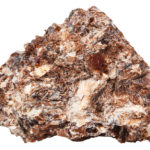By Bonnie Jenkins, Advanced Natural Wellness
When it comes to bowel movements, there’s no such thing as “normal.” Normal for you can be going to the bathroom as often as three times a day or as seldom as three times a week. But many people occasionally experience constipation, which is defined as having fewer than three bowel movements in a week or producing hard, dry stools that you must strain to pass.
An Uncomfortable Inconvenience
For most of us, occasional constipation is more of an uncomfortable inconvenience than a real health threat. However, persistent or progressive constipation merits a visit to the doctor. That’s because ongoing constipation can be a symptom of an underlying medical condition like irritable bowel syndrome, a blockage in the intestines or even colon cancer. If constipation is chronic, you should check with your doctor to rule out serious problems. If the backup is just an occasional discomfort, your doctor will probably recommend an over-the-counter laxative. But, before you head for the drugstore, you may want to try any of a number of natural strategies to get things moving and prevent future episodes.
Eat More Fiber
The first step toward better bowel health is a familiar one: Eat more fiber. Fiber will help you form soft, bulky stools that are easier to pass. The goal is to consume 35 grams of fiber each and every day—and this fiber can be found in fruits, vegetables, beans, legumes and whole grains. But don’t try to eat the whole 35 grams immediately. That strategy that will only result in gas and diarrhea. Instead, gradually increase the amount of fiber you eat over a couple of weeks to avoid digestive problems.
Psyllium Supplements
You can also buy fiber pills or powders. Just be sure to read the label carefully. Some big-name fiber supplements contain wood cellulose and other harsh fibers. Instead, look for a fiber supplement that contains psyllium husks. Both the seeds and husks come from a distinct Mediterranean plant, but that’s where the similarities end. Psyllium seeds swell and become gelatinous when moist, providing soluble fiber that’s great for heart disease, but they won’t do a thing to relieve your constipation. Psyllium husks, on the other hand, contain insoluble fiber, which loosens old matter in the bowel and increases the bulk of stools. A word of caution when adding insoluble fiber supplements to your daily regime: Drink plenty of water to avoid gas and bloating.
Flaxseed Supplements
Of course, psyllium isn’t the only supplemental plant source of fiber. Flaxseed provides both insoluble and soluble fiber, and help ease the resistance to bowel passage. And unlike psyllium, flaxseeds provide omega-3 fatty acids. Grinding flaxseeds makes it easier for your body to reap the fiber and omega-3 fatty acid benefits. You can add ground flaxseeds to your cereal or use a tablespoon or so in smoothies for added fiber. Plus, if you have stubborn constipation, you can take both psyllium husks and flaxseed for a one-two punch.
The World's Quickest Solution for Ending Prostate and Urinary Misery
This has recently been revealed to be one of the only real breakthroughs in prostate health.
The seeds of a strange fruit (sometimes called "Chinese Apples") hold powerful phytonutrients that are a revolution in prostate health.
In fact, UCLA and Veterans Administration research have now proved this to be true.
Not only that, but it may be the worlds quickest solution for ending prostate misery.
Simply stated, these phytonutrients represent a huge step beyond beta sitosterol, saw palmetto, and other phytosterols alone.
Simply click HERE if you want to have fast prostate relief...restful, uninterrupted sleep...no more constant "urges to go"...enhanced virility...and optimal prostate support for life.
Along with increasing water to activate the fiber you are taking, liquids will add fluid to the colon and bulk to stools. The more hydrated the stool, the softer it is and thus, the easier it is to pass. Water, herbal teas and fruit juices are the best sources of extra fluids. Avoid alcohol and drinks with caffeine, such as coffee and soda, because they can cause dehydration.
Exercise Regularly
It’s also important to exercise regularly. One of the many benefits of regular exercise is that it gets all of your body’s systems functioning better. If you’re constipated, exercising 20 to 30 minutes a day can help get your gut going, which leads to healthy—and regular—bowel movements.
If things still aren’t moving, try taking magnesium, which causes movement of fluid into the bowel. Take 500 to 1,000 mg. of magnesium for several days and see if it doesn’t make a difference.
When You Have To Go- Go!
Finally, if you do feel the urge to have a bowel movement, don’t wait—behavioral habits can also affect constipation. Ignoring the urge can make constipation worse. Make a trip to the bathroom, relax and avoid pushing. Once you start pushing, your body starts to depend on it. It is better—and considerably less painful— to let things occur naturally.
References:
Basch E, et al. Flax and flaxseed oil (Linum usitatissimum): a review by the Natural Standard Research Collaboration. Journal of the Society of Integrative Oncology. 2007;5:92-105.
Ceranić M, et al. Plantago ovata. Acta Chirurgica Iugoslavica. 2006;53:9-11.
Johanson JF. Review of the treatment options for chronic constipation. MedGenMed. 2007;9:25.






